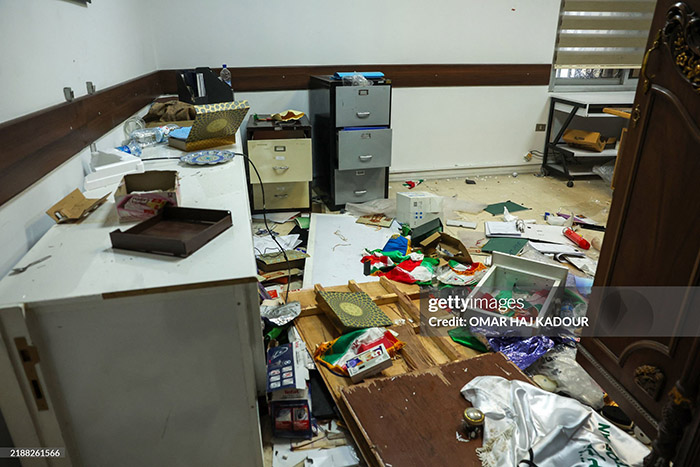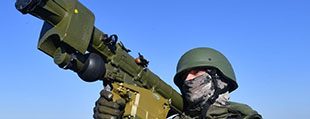A day earlier, the border between Syria and Lebanon would have been humming with guards, soldiers and agents from Syria’s much-feared intelligence services, the mukhabarat.
It was empty this evening of officials. A group of young men stood outside the duty-free store, giggling and absorbing the moment. An abandoned tank below a torn poster of Bashar al-Assad marked the only immediate signs of any struggle to take the Syrian capital.
The road into Damascus was dark and quiet. A ceasefire has been put into effect by the rebels, who declared a curfew to last from 4 p.m. to 5 a.m. local time. It appeared that most were observing it. Tracer fire could be seen over the city and bursts of celebratory gunfire rang out. There was no sign of checkpoints on the streets but in the center of Damascus two armed men from Idlib patrolled the area, stopping to pose with an old man for a photo.
Another group of rebels drove past to ask a group of residents what they were doing on the streets. They spoke softly and politely, in keeping with the strict edict that has been given by their leader, Abu Mohammad al-Jolani, that rebel forces maintain law and order and reassure a startled Syrian population, particularly its minorities, that they do not seek retribution or revenge.

